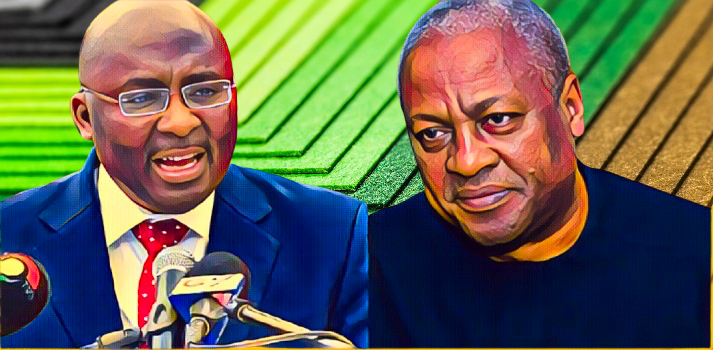KEY POINTS
- Vice President Bawumia criticizes former President Mahama for remarks aimed at traditional and religious leaders.
- Bawumia defends Ghana’s religious and cultural institutions, emphasizing the need for respect in political discourse.
- The incident has sparked debate over the role of leaders in fostering unity and respect in Ghana.
Ghana’s Vice President Dr Mahamudu Bawumia has vehemently condemned former President John Dramani Mahama for his recent utterances which he said were disrespectful to traditional chiefs, pastors and imams.
Bawumia made the remarks when he was speaking in public where he accused Mahama of using indecent language towards respected leaders in the society of Ghana. The vice president has raised concerns about the former president’s attitude which he said is demeaning to the nation’s cultural and religious beliefs.
Some of the statements attributed to Mahama which have generated a lot of controversy, have been said to have included disparaging remarks about some traditional and religious leaders for their interference in political affairs.
This, Bawumia said was wrong because it was an affront to institutions that have been part of Ghanaian society for a long time. “How can a former president speak so indecently about chiefs, pastors and imams?” Bawumia wondered, calling for better language, especially from politicians.
Bawumia who has been associated with religious and traditional rulers was disappointed that Mahama would make such remarks, especially coming from a former president. The vice president stressed the need to uphold the cultural values of the people of Ghana, especially in this period when the nation needs to be politically stable.
GhanaWeb has reported that this to and fro has heightened political polarisation in Ghana especially with the 2024 elections looming. Mahama, a former president and now the leader of the opposition has not been shy to express his displeasure with the current government. But his recent comments on religious and traditional leaders have been seen by some as going over the top.
Respect as a factor in political discourse
This is especially so because Bawumia is calling for the use of respect in politics in a country where traditional leaders and religious institutions are highly influential in society.
Traditional leaders such as chiefs and religious leaders such as pastors and imams are highly respected and have a lot of influence throughout the country. In most societies, they act as arbitrators, even in religious and other communal affairs.
The vice president’s response raises a question of how political leaders should interact with these institutions. Bawumia emphasized that people in leadership positions should be careful with their words especially when speaking to groups that are critical in the promotion of peace and unity in the nation.
He also stressed that politicians of different political leaning should refrain from any language that can be interpreted as inflammatory or abusive.
A call for unity amid political tensions
As Ghana prepares for the next election, the political climate in the country is gradually heating up. The tone of the campaigns from both the ruling government and the opposition has intensified and leaders are exchanging barbs.
But Bawumia’s reaction to Mahama’s remarks is a good example of how people should learn to come together despite the political differences.
The vice president again urged leaders to promote tolerance as a way of encouraging understanding between people. He called on politicians to be role models for young people by avoiding the use of abusive language when making their points.
According to Bawumia, it is important to understand that words have power, and the future of Ghana depends on the leaders’ cooperation even if they have different opinions.
As Ghana heads to another election, the traditional and religious leaders will remain important. The role they play in shaping the moral and ethical fabric of the nation cannot be overemphasized and any attempts to vilify these institutions are likely to cause an uproar. However, there was a note of hope in Bawumia’s message given the political rivalry between the two countries.
He also said he believed that the leaders of Ghana are capable of putting aside their differences and working for the progress of the country. According to him, the recognition of all institutions including the chiefs and religious leaders will go a long way in fostering the unity of the country, Ghana.




